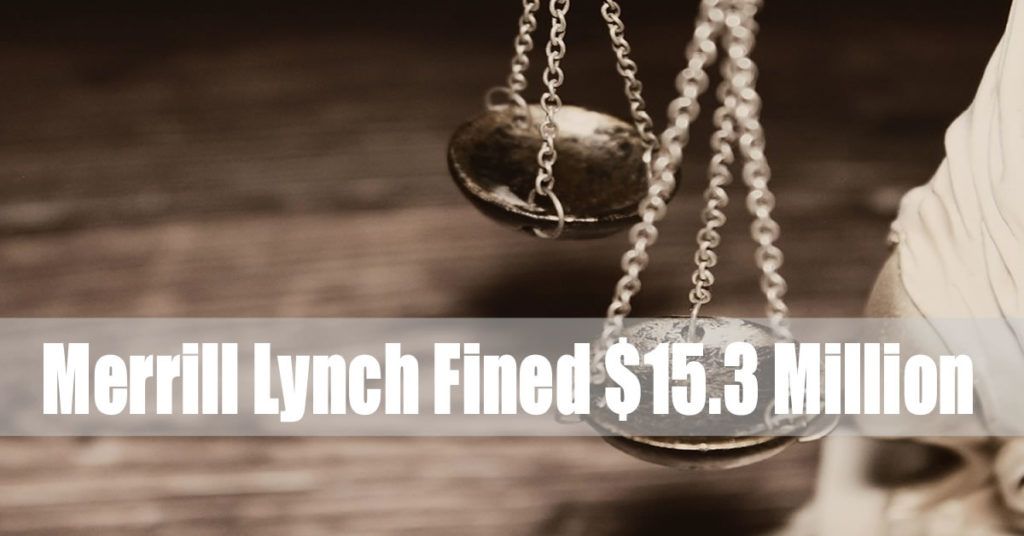Restitution of $15.2 million, which includes an interest component of $1.8 million, is what Merrill Lynch has been asked to be paid by the Financial Industry Regulatory Authority (FINRA), apart from being censured. The restitution pertains to customers purchasing mutual funds being charged excessive fees.
Merrill avoided the levy of a fine by the self-regulator, because of their ‘extraordinary cooperation” in the case. A full-service brokerage firm, Merrill Lynch has over 30,000 registered representatives on its rolls. Its services include sales and trading, research, and underwriting. It became a wholly-owned, indirect subsidiary of Bank of America Corporation in January 2009.
How it happened
Table of Contents
A variety of shares are offered by issuers of mutual funds, such as Class A and Class C shares. In general, a front-ended sales charge is levied on Class A shares, which is not levied on Class C shares. Class C shares, instead, are subject to annual expenses that are higher and could also be subject to a deferred sales charge. Class A shares can also be issued at a reduced, or waived, sales charge in the form of a volume discount.
The automated system used by Merrill was set up to disallow Class C share purchases while Class A shares were available for purchase at a discount or even at the NAV. It seems that the system, as explained by FINRA, applied purchase limits on Class C share purchases that were not in keeping with the purchase limit for a fund’s Class C shares, or not in keeping with the threshold when Class A shares were available for purchase at NAV or lower. This happened despite the fund holdings as well as customer purchases being calculated correctly.
This, apparently, happened in a few instances and appears to have been mistakenly done. The outcome was that Class C shares were purchased in many customer accounts while Class A shares were available for purchase at a lower price. FINRA calculated the excess fee paid by such customers to aggregate to $13,4 million between January 2015 and January 2021.
Merrill avoids being fined
Several actions of Merrill Lynch were noted by FINRA and counted as “extraordinary cooperation” and “substantial assistance” for undertaking an “extensive review” of the firm’s systems relating to the sale of Class C shares of a mutual fund, after the discovery of the issue. At “considerable expense” Merrill also hired an external consultant to identify impacted customers and “promptly established” a remediation plan for them. This led to FINRA not levying a fine on Merrill in the matter.
Common Types of Stock Broker Fraud
In the world of investing, there are many ways to become a victim of stock broker fraud. These crimes are often a result of a stockbroker failing to disclose personal conflicts of interest or failing to follow instructions. A breach of fiduciary duty can be the result of a stockbroker making unauthorized trades or failing to obtain a client’s explicit permission to make certain trades. Unauthorized trading by a stockbroker is a form of stockbroker fraud.
Investing in securities is extremely risky due to the ebb and flow of market fluctuations. This is made worse by unscrupulous stockbrokers who will take advantage of investors. The best way to protect your money is to be vigilant about trading activity. If you notice a stockbroker not executing your order, it is a sign that you’ve been a victim of stock broker fraud. Listed below are common types of stockbroker fraud:
Brokers must abide by the law in all their dealings. In addition to having the highest level of commercial honor, brokers have little incentive to violate their duties. For example, they have no incentive to make mistakes in placing orders or executing trades. Brokers must implement written procedures and oversee employees. Failure to follow these procedures can result in a claim against a brokerage firm. When these practices occur, the client can hold the broker liable for their losses.
If a stockbroker fails to follow these rules, you could be held liable for fraud. Federal law states that a broker must have essential information about a security before making a recommendation. Additionally, FINRA Conduct Rule 2310 states that a broker must make reasonable efforts to acquire this information. If you believe a broker is violating these rules, consider hiring an attorney with substantial experience. They have a proven track record in dealing with such cases and will provide you with a strong defense. They can also help you negotiate a favorable plea deal if necessary.
Other common types of stock broker fraud include excessive trading. Excessive trading, or churning, occurs when a broker personally buys and sells a security without the client’s knowledge. This practice, known as “trading ahead,” can lead to multiple claims of fraud. The broker can be held liable for breach of fiduciary duty and failure to supervise. You can also file a complaint if you suspect your broker of violating the law by dealing with an unethical stockbroker.
When you’re working with a stockbroker who has lied about their investment decisions, it is essential to contact a securities attorney as soon as possible. Your lawyer can help you pursue a compensation claim and prove that you’re not a victim of broker fraud. Our firm has represented hundreds of clients throughout the U.S. and Puerto Rico in stockbroker fraud cases. Let us help you get back the compensation you deserve!


